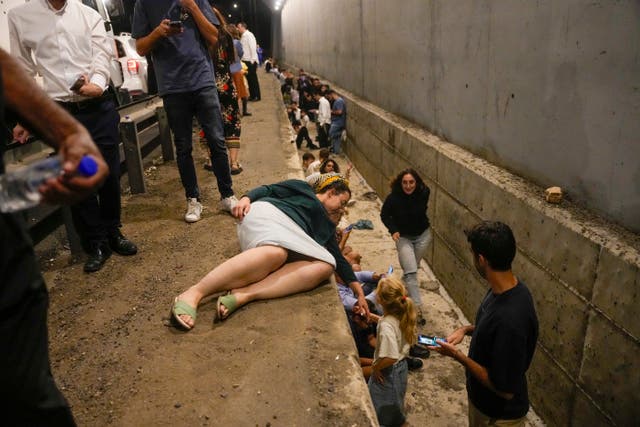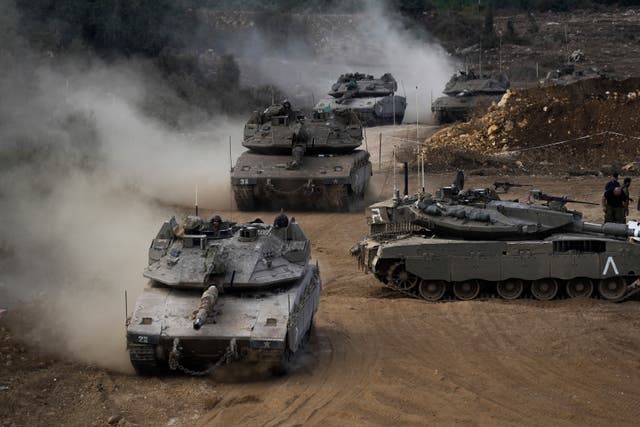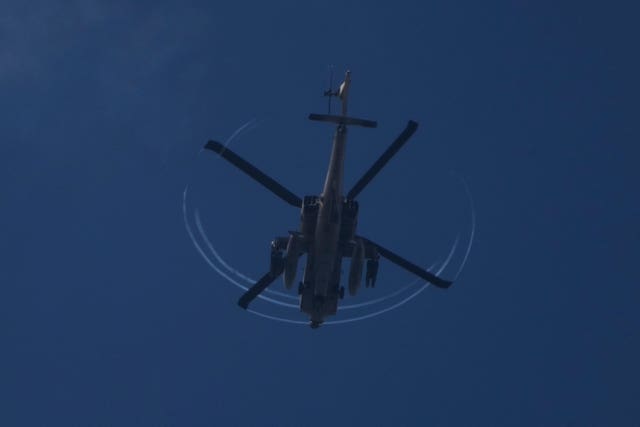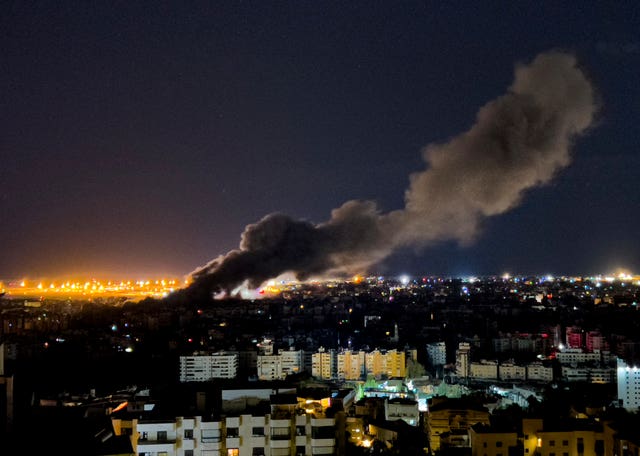Iran says it fired dozens of missiles into Israel on Tuesday as the months-long fighting between Israel and Iran’s proxies in the region: Hezbollah and Hamas; escalated, threatening a wider regional conflict.
Israel ordered residents to remain close to bomb shelters as air raid sirens sounded across the country.
Iran said it had launched the missile strike in retaliation for the killing of Hezbollah leader Hassan Nasrallah in Beirut last week. A statement also made reference to Hamas chief Ismail Haniyeh who was killed in Tehran in July.
The strikes came as Israeli police said six people had been killed in a shooting incident in Tel Aviv. No further details were released.
A series of window-shaking explosions were heard in Tel Aviv and near Jerusalem, though it was not immediately clear whether the sounds were from missiles landing or being intercepted by Israeli defences, or both.

Israel and the United States have warned there would be severe consequences in the event of an attack on Israel from Iran, which backs the militant group Hezbollah in Lebanon.
Military spokesperson Rear Admiral Daniel Hagari released a video statement on Tuesday saying “the air defence system is fully operational, detecting and intercepting threats wherever necessary, even at this moment”.
Soon after, a series of explosions were heard in Tel Aviv and near Jerusalem.
It was not immediately known if they were interceptions or incoming missiles landing. The explosions near Jerusalem were so loud that windows shook.
The orders to shelter in place were sent to Israelis’ mobile phones and announced on national television.

TV stations reported sirens in parts of Jerusalem as well as central Israel.
The alerts were sounded after a day of rocket and missile attacks from Lebanon, and as Israel said it had begun limited ground operations in southern Lebanon.
Israeli airstrikes and artillery fire pounded southern Lebanese villages where people were ordered to evacuate, and Hezbollah militants responded by firing a barrage of rockets into Israel.
There was no immediate word on casualties as fighting intensified and concerns of a wider regional war grew.

A senior White House official warned of “severe consequences” should Iran launch a ballistic missile against Israel.
US ships and aircraft are positioned in the region to assist Israel in the event of an attack from Iran.
The official spoke on condition of anonymity to discuss intelligence.
Rear Admiral Daniel Hagari also warned of consequences if Iran fired missiles into Israel.
He urged the public to stay close to sheltered areas.

“The Iranian strike could be widespread. Following Home Front Command guidelines can save lives,” he said.
Iranian officials could not be immediately reached for comment.
Iran launched an unprecedented direct attack on Israel in April, but few of its projectiles reached their targets.
Many were shot down by a US-led coalition, while others apparently failed at launch or crashed in flight.
While Hezbollah denied Israeli troops had entered Lebanon, the Israeli army announced it had also carried out dozens of ground raids into southern Lebanon going back nearly a year.
Israel released video footage purporting to show its soldiers operating in homes and tunnels where Hezbollah kept weapons.
If true, it would be another humiliating blow for Iran-backed Hezbollah, the most powerful armed group in the Middle East.
Hezbollah has been reeling from weeks of targeted strikes that killed its leader, Hassan Nasrallah, and several of his top commanders.
On Tuesday morning, Israel warned people to evacuate to the north of the Awali River, some 36 miles from the border and much farther than the Litani River, which marks the northern edge of a UN-declared zone intended to serve as a buffer between Israel and Hezbollah after their 2006 war.
The military statements indicated Israel might focus its ground operation on the narrow strip along the border, rather than launching a larger invasion aimed at destroying Hezbollah, as it has attempted in Gaza against Hamas.
As the fighting intensifies, European countries have begun pulling their diplomats and citizens out of Lebanon.




Comments: Our rules
We want our comments to be a lively and valuable part of our community - a place where readers can debate and engage with the most important local issues. The ability to comment on our stories is a privilege, not a right, however, and that privilege may be withdrawn if it is abused or misused.
Please report any comments that break our rules.
Read the rules hereLast Updated:
Report this comment Cancel